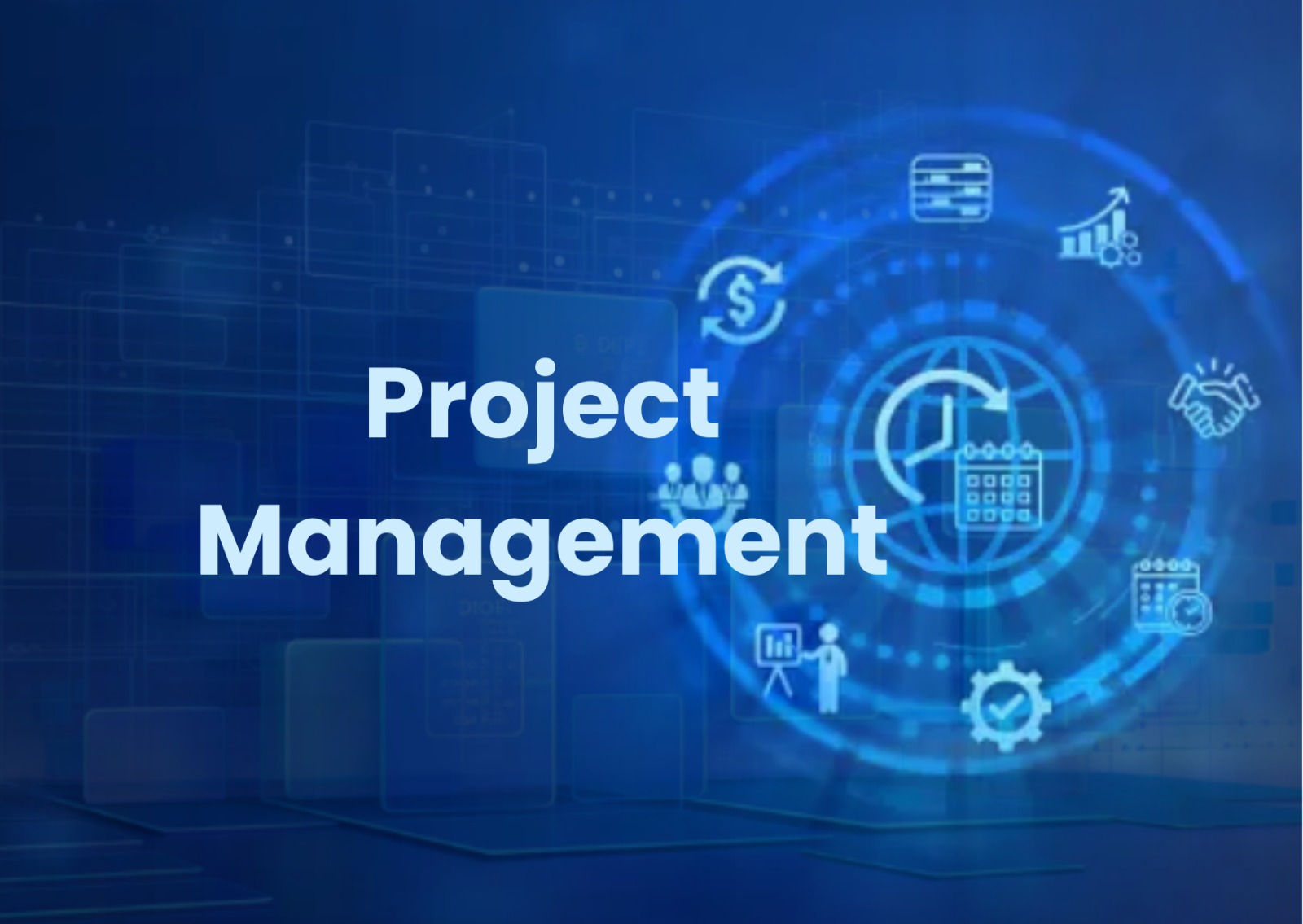"From Concept to Completion: Guiding Projects to Success"
Project management is the practice of planning, organizing, and executing projects to achieve specific goals and deliver desired outcomes within defined constraints. It involves overseeing the projects scope, time, cost, quality, resources, and stakeholders to ensure successful project completion.
Project Initiation: - This phase involves defining the projects objectives, scope, and deliverables. The project manager identifies stakeholders, assesses feasibility, and develops a project charter or initial project plan. Project initiation sets the foundation for successful project execution.
Project Planning: - In this phase, the project manager creates a comprehensive project plan that outlines tasks, schedules, resource requirements, budgets, and potential risks. The plan serves as a roadmap, guiding project execution and providing a baseline for monitoring progress.
Scope Management: - Managing the project scope involves defining and controlling what is included and excluded from the project. It includes identifying project requirements, managing changes, and ensuring that the project remains focused on delivering the intended outcomes.
Time Management: - Effective time management involves developing a project schedule, establishing milestones and deadlines, and tracking progress. Techniques such as critical path analysis and Gantt charts help monitor project timelines, identify potential delays, and ensure timely completion.
Cost Management: - Cost management entails estimating project costs, creating budgets, and tracking expenses throughout the project lifecycle. The project manager monitors costs against the budget, controls spending, and identifies cost-saving opportunities.
Quality Management: - Quality management focuses on ensuring that project deliverables meet defined quality standards and customer expectations. It involves setting quality objectives, conducting quality assurance activities, and performing quality control checks to identify and rectify any deviations.
Resource Management: - Effective resource management involves identifying and securing the necessary resources (human, material, and equipment) for the project. The project manager assigns tasks, monitors resource allocation, resolves conflicts, and ensures that resources are utilized efficiently.
Risk Management: - Risk management involves identifying, assessing, and mitigating project risks. The project manager anticipates potential risks, develops risk response strategies, and establishes contingency plans to minimize the impact of unforeseen events on project outcomes.
Communication and Stakeholder Management: - Project managers establish effective communication channels to ensure clear and timely exchange of information among project team members and stakeholders. They engage stakeholders, manage expectations, and address concerns to maintain positive relationships and support for the project.
Project Monitoring and Control: - Throughout the project, the project manager monitors progress, tracks performance, and measures project outcomes against the plan. They identify deviations, implement corrective actions, and make necessary adjustments to keep the project on track.
Project Closure: - The project closure phase involves finalizing project deliverables, conducting post-project reviews, and documenting lessons learned. The project manager ensures that project objectives have been met, conducts a formal project closure process, and facilitates a smooth transition of project outputs to relevant stakeholders.
Effective project management ensures that projects are delivered successfully, meeting objectives, timelines, budgets, and quality standards. By employing proven methodologies, tools, and best practices, project managers drive collaboration, manage risks, and optimize resources to achieve project success.
